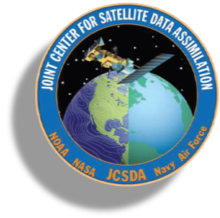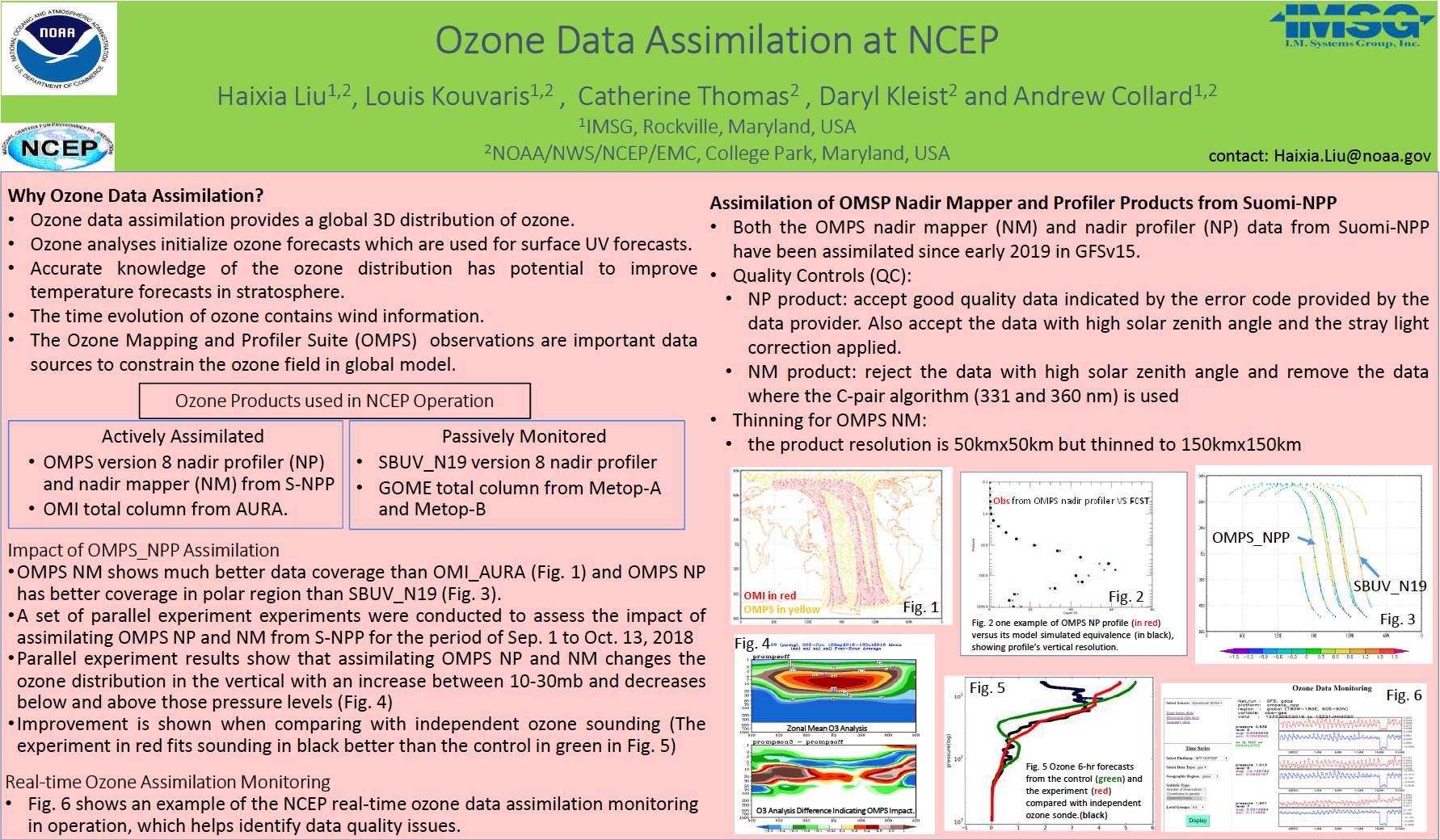Article by Dr. James Yoe, JCSDA Chief Administrative Officer, NCEP
The JCSDA hosted its 9th Symposium as part of the 101st Annual Meeting of the American Meteorological Society (AMS) January 9-15, 2021. The Annual Meeting was held as a completely virtual event as a result of the on-going COVID-19 pandemic. Despite the challenges presented by meeting completely online, the Meeting and the Symposium were successful.
The symposium consisted of two 50-minute oral sessions of 10 5-minute “lightning” talks and discussions. Authors uploaded full 15-minutes talks and slides prior to the Meeting. Audience members were able to preview these in order to participate in lively question-and-answer discussions during these sessions. The condensed format necessitated some other changes from business as usual; although presentations were arranged along recognized JCSDA project theme lines, the transition from one topic to the next was downplayed to save time for discussions between the presenters and the audience. Multiple session chairs tracked questions in the chat window, and a student assistant was vital for helping to maintain a very strict schedule.
The JCSDA sessions were held on the mid-morning and early afternoon of Friday, January 15, 2021, the final day of the Annual Meeting. This proved to be serendipitous, as technical difficulties from the first part of the week had been resolved, and attendees had become familiar with the lightning talk format and adept at using the platform. Roughly 50 people attended each of the JCSDA oral sessions. The Symposium was completed by a virtual poster session on the afternoon of Friday, January 15. Posters were available for online viewing, and a chat feature with a video option was used to facilitate viewer discussion. All presentations will be available to registered participants on the Meeting Website until April 12, 2021.
Figure 1. Example of a poster presented at the Ninth JCSDA Symposium at AMS 2021 focused on Ozone Data Assimilation at NCEP. The poster authors feature key partners and stakeholders from NOAA/NWS/NECP.


